Chlamydia
Chlamydia, which is caused by the bacteria Chlamydia trachomatis, targets the cells of the mucous membranes including the surfaces of the urethra, as well as the anus and rectum. Although possible, it rarely targets the mouth or throat.How is it spread?
Chlamydia is transmitted through semen, precum and vaginal secretions during unprotected anal and oral sex with an infected person. Chlamydia is easily transmitted through engaging in anal, vaginal or oral sex. It can also be transmitted by touching an infected area with your own genitals or anus. Someone with no symptoms can still transmit it. Chlamydia is not transmitted through such casual contact as hugging, shaking hands, sharing food, using the same eating utensils, drinking from the same glass, sitting on public toilets, or touching door knobs.What are the symptoms?
Show Image
- Discharge from the genitals, which may be yellow or white, watery or thick (see picture)
- Need to urinate (pee) more often
- Thick yellow or white drip from the genitals
- Burning or pain when you urinate (pee) or have a bowel movement
- Or a person may not experience any symptoms
How is it treated?
A healthcare provider may prescribe a single-dose antibiotic, such as azithromycin (Zithromax), taken as a pill. On the other hand, the healthcare provider may choose an antibiotic, such as doxycycline (Atridox, Bio-Tab), to be taken as a pill twice a day for a week. Up to 95% of people will be cured after one course of antibiotics.How can an infection be prevented?
Abstinence is the only 100% effective way of preventing chlamydia, however, if you choose to engage in sexual activities and are unsure if you or your partner is possibly infected, consistent and correct use of condoms can effectively help reduce the risk of transmission. If you think that you or someone you know may have been infected with chlamydia click here for testing sites. If you’re sexually active, sign-up for free STD testing reminders via email, text or both at WeAllTest.com. If We All Test, we can help eliminate syphilis and other STDs in our community.Genital Warts (HPV)
Show Image
Human Papilloma Virus (HPV) is one of the most common sexually transmitted diseases in the world. Genital warts are the most easily recognized sign of genital HPV infection. About two-thirds of people who have sexual contact with a partner with HPV will become infected and develop warts. Genital warts are soft, moist, usually flesh colored, and appear in the genital area within weeks or months after infection. Warts may be flat, small or large. They sometimes appear in clusters that resemble cauliflower-like bumps. In men, genital warts usually are seen on the tip of the penis. They also may be found on the shaft of the penis, on the scrotum, or around the anus. There are cases where genital warts have been found in the thigh and groin.
How is it spread?
HPV is very contagious and easily spread during sex with an infected partner. It is transmitted by skin-to-skin contact during anal, vaginal and less frequently oral sex with someone who is infected. HPV is not transmitted through casual contact such as hugging, shaking hands, sharing food, using the same eating utensils, drinking from the same glass, sitting on public toilets, or touching door knobs.What are the symptoms?
Show Image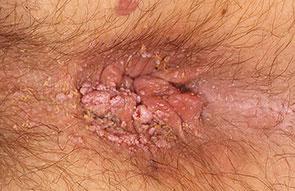 Show Image
Show Image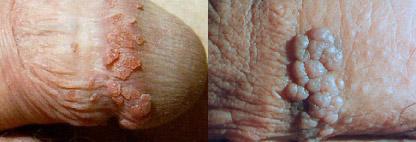
- Small bumpy warts on the sex organs or anus (see picture)
- Itching or burning around the sex organs
- Although warts may go away, either on their own or because of treatment, the virus has not necessarily left the body. Warts may come back and the person is still infectious
- Like many STDs, HPV infections often do not have signs and symptoms that can be seen or felt. If you are infected but have no symptoms, you can still spread HPV to your sexual partner(s) and/or develop complications from the virus
How is it treated?
Treatment of genital warts removes warts and does not cure the viral infection. A healthcare provider may choose one of the several methods to treat genital warts. Warts on the genitals may be frozen with liquid nitrogen (cryotherapy). Liquid nitrogen treatment – The healthcare provider applies the liquid nitrogen over the course of multiple office visits until the warts are completely gone. Podophyllin – Warts on the genitals may be treated weekly with Podophyllin by your healthcare provider. You may also be prescribed a medicine called Podofilox (brand name: Condylox), which is applied to warts at home twice a day for three days, and then rest for four days. This “do at home” process is repeated weekly until the warts are gone. Loop electrosurgical excision procedure (LEEP) – With this method for removing genital warts, the healthcare provider passes a sharp instrument shaped like a loop underneath the wart, cutting the wart out of the skin. CO 2 laser surgery – For large warts in the genital area, laser surgery may be needed for complete removal. Iterferon injections – For genital warts that don’t go away after they’ve been treated with other methods, your healthcare provider may try an interferon injection into warts. Interferon is a chemical produced in our bodies, to help our immune systems fight infection. An injection of interferon into the wart may help your body’s immune system fight the virus that is causing the wart. Generally, interferon is injected into warts twice a week for up to eight weeks, or until the warts are gone. Warts on the skin (such as on the fingers, feet, and knees) and warts on the genitals are removed in different ways. Don’t try any home remedies or over-the-counter drugs to remove warts on the genital area. You could damage your genital area by putting certain chemicals on it.How can infection be prevented?
HPV vaccines that protect us from the HPV strains known to cause genital warts and cancers are available. For more vaccine information, click here. Abstinence is the only 100% effective way of preventing genital warts. HPV is passed on by skin-to-skin contact with an infected person. However, if you chose to engage in sexual activities and are unsure if you or your partner is possibly infected, consistent and correct use of latex barriers (condoms) can help reduce the risk of transmission. Warts may not always appear in the place where skin contact occurred and only areas covered by condoms, dams or gloves are protected from infection. Washing your hands right after sex can also help prevent transmission. If you think that you or someone you know may have been infected with HPV click here for testing sites. If you’re sexually active, sign-up for free STD testing reminders via email, text or both at WeAllTest.com. If We All Test, we can help eliminate syphilis and other STDs in our community.Gonorrhea
Show Image
Gonorrhea is caused by bacteria called Neisseria gonorrhea that grows in the warm moist areas of the reproductive tract, including the urethra, vagina, mouth, throat, and anus.
How is it spread?
Gonorrhea is transmitted through semen and vaginal secretions during unprotected anal and oral sex with an infected person. Gonorrhea is easily transmitted through engaging in anal, vaginal or oral sex. It can also be transmitted by touching an infected area with your own genitals or anus. Someone with no symptoms can still transmit it. Gonorrhea is not transmitted through such casual contact as hugging, shaking hands, sharing food, using the same eating utensils, drinking from the same glass, sitting on public toilets, or touching door knobs.What are the symptoms?
Show Image Show Image
Show Image
- Need to urinate (pee) more often
- Discharge from the genitals, which may be yellow or white, watery or thick (see picture)
- Burning or pain when you urinate (pee) or have a bowel movement
- Or a person may not experience any symptoms
How is it treated?
Gonorrhea is now treated by a large number of new and very potent antibiotics. Depending on your healthcare provider, administering of treatment can include an intramuscular injection or a series of pills. It is important to see your healthcare provider for a follow-up visit 7 days after treatment to re-check cultures and confirm the cure of infection.How can infection be prevented?
Abstinence is the only 100% effective way of preventing gonorrhea, however, if you choose to engage in sexual activities and are unsure if you or your partner is possibly infected, consistent and correct use of condoms can effectively help reduce the risk of transmission. Washing your hands right after sex can also reduce risk. If you think that you or someone you know may have been infected with gonorrhea click here for testing sites. If you’re sexually active, sign-up for free STD testing reminders via email, text or both at WeAllTest.com. If We All Test, we can help eliminate syphilis and other STDs in our community.Herpes
Show Image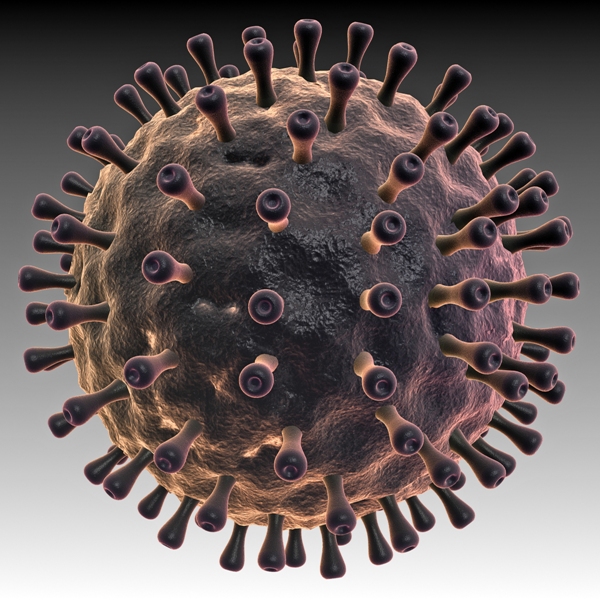
Herpes is a recurrent skin condition characterized by sores on the mouth or genitals. It is caused by the Herpes Simplex Virus, called HSV-1 and HSV-2. HSV-1 most commonly causes “cold sores” or “fever blisters” on the mouth or face and HSV-2 most commonly causes sores on the genitals. However, the viruses are identical under a microscope and either type can infect the mouth or genitals.
How is it spread?
HSV can be passed on, both sexually and non-sexually, during skin to skin contact by: direct contact with a sore, mouth to genitals, genitals to mouth, genitals to genitals, and mouth to anus. It can also be transmitted when there are no symptoms present. HSV is not transmitted through such causal contact as hugging, shaking hands, sharing food, using the same eating utensils, drinking from the same glass, sitting on public toilets, or touching door knobs.What are the symptoms?
Show Image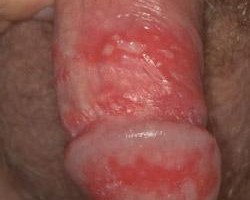 Show Image
Show Image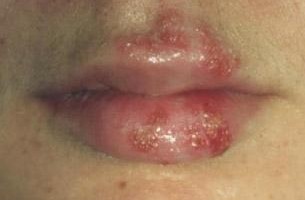
- Small painful blisters on the sex organs or mouth (see picture)
- Itching or burning before the blisters appear
- Blisters generally last 1-3 weeks, when they do go away, you still have herpes and the blisters may reoccur in the same area with varying frequency
- An outbreak may be preceded by flu-like symptoms
How is it treated?
There are medications available to treat genital herpes infections, preventing or reducing the frequency or recurrent outbreaks. However, herpes cannot be “cured”. The decision to use one treatment over another for genital herpes depends on many factors that must be discussed with your healthcare provider. During an outbreak, keep the infected area as clean and dry as possible. This will help the natural healing processes. Some healthcare providers recommend warm showers in order to cleanse the infected area. Afterwards, towel dry gently, or dry the area with a hair dryer on a low or cool setting. To prevent chaffing, some people also find it helpful to avoid tight-fitting undergarments. Finally, a healthy immune system is important in controlling the virus. Don’t ignore the need for proper nutrition, exercise, and rest.How can infection be prevented?
Abstinence is the only 100% effective way of preventing HSV infection. However, if you chose to engage in sexual activities and are unsure if you or your partner is possibly infected, consistent and correct use of latex barriers (condoms) can help reduce the risk of transmission. However, only areas covered by condoms, dams or gloves are protected from infection. If you think that you or someone you know may have been infected with herpes click here for testing sites. If you’re sexually active, sign-up for free STD testing reminders via email, text or both at WeAllTest.com. If We All Test, we can help eliminate syphilis and other STDs in our community.Hepatitis
Show Image
Your liver helps your body digest food, store energy and remove poisons. Hepatitis is a swelling of the liver that makes it stop working well. It can lead to scarring, called cirrhosis, or to cancer.
Viruses cause most cases of hepatitis. The type of hepatitis is named for the virus that causes it; for example, hepatitis A, hepatitis B or hepatitis C. Drug or alcohol use can also lead to hepatitis. In other cases, your body mistakenly attacks its own tissues. You can help prevent some viral forms by getting a vaccine. Sometimes hepatitis goes away by itself. If it does not, it can be treated with drugs. Sometimes hepatitis lasts a lifetime.
Find out more about hepatitis A, B, and C using the following links:
Hepatitis A
Hepatitis B
Hepatitis C
Hepatitis A
How is it spread?
Show Image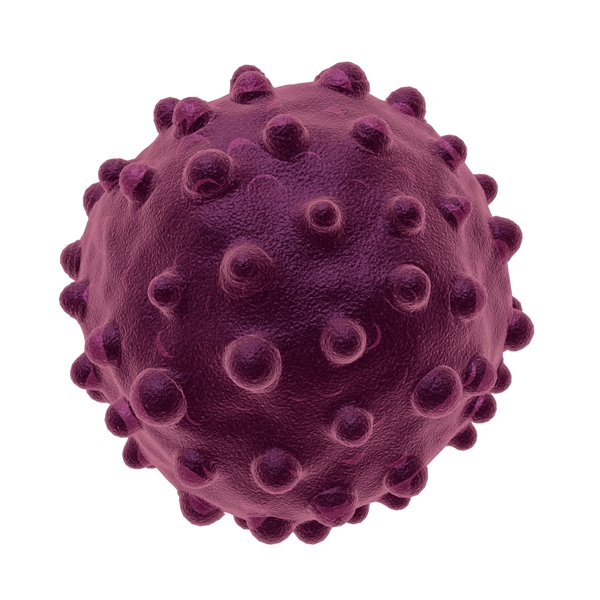
The Hepatitis A virus is found in feces. It can be passed on if even a tiny amount of feces from a person with hepatitis A comes into contact with another person’s mouth. This means the virus can also be passed on sexually through practices such as oral-anal contact. Personal hygiene, with careful hand washing, can minimize the risk of the virus being passed.
What are the symptoms?
- A short, mild, flu-like illness
- Nausea and vomiting
- Diarrhea
- Loss of appetite
- Weight loss
- Jaundice (yellow skin and whites of eyes, darker yellow urine and pale feces)
- Itchy skin
- People may have no symptoms at all, but they can still pass on the hepatitis virus to others.
How is it treated?
There is no specific treatment for hepatitis A. Rest is recommended during the acute phase of the disease when the symptoms are most severe. People with acute hepatitis should avoid alcohol and any substances that are toxic to the liver, including acetaminophen (Tylenol).How can infection be prevented?
There’s an effective hepatitis A vaccine and hepatitis A and B combo vaccine (click here to learn more). Hepatitis A can be transmitted by particles of infected stool entering your mouth through anal contact and rimming; using dams and washing your hands after sex with an infected person can help reduce the risk. It can also be passed on through using utensils handled by an infected person, or by eating infected food or drinking infected water. If you’re sexually active, sign-up for free STD testing reminders via email, text or both at WeAllTest.com. If We All Test, we can help eliminate syphilis and other STDs in our community.Hepatitis B
Show Image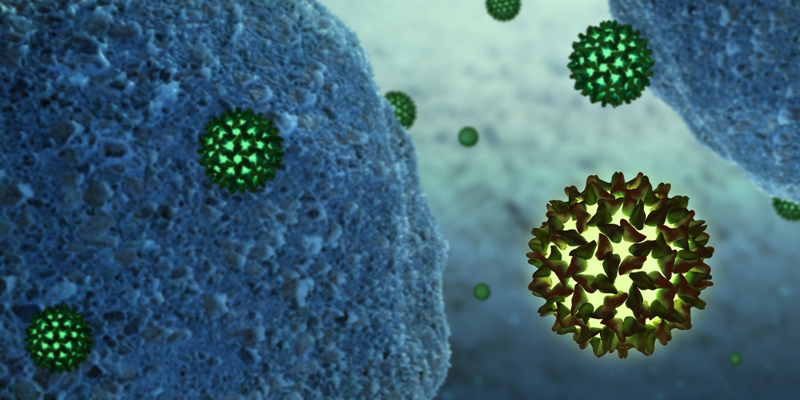
Hepatitis B is a virus that can cause chronic infection, cirrhosis (scarring), and cancer of the liver. The virus is present in blood, semen, vaginal secretions, and breast milk. Individuals are encouraged to take all three doses of the vaccine to protect themselves against infection.
How is it spread?
Hepatitis B is transmitted through unprotected anal, vaginal, and oral sex with an infected person; through contaminated needles or syringes; or from an infected mother to her new born during childbirth or breast-feeding. Hepatitis B is not transmitted through such causal contact as hugging, shaking hands, sharing food, using the same eating utensils, drinking from the same glass, sitting on public toilets, or touching door knobs.What are the symptoms?
- Flu-like feelings that don’t go away
- Jaundice (yellow skin and whites of eyes, darker yellow urine and pale feces)
- People may have no symptoms at all, but they can still pass on the hepatitis virus to others
How is it treated?
Acute hepatitis B usually goes away by itself and does not require medical treatment. If very severe, symptoms such as vomiting or diarrhea may require treatment to restore fluids and electrolytes.How can infection be prevented?
There’s an effective hepatitis B vaccine, and a hepatitis A and B combo vaccine (click here for more information). Hepatitis B is transmitted by infected blood or semen entering your bloodstream thought activities like unprotected anal sex, sharing infected injecting equipment, toothbrushes or razors, oral sex, and tattooing and body piercing with unsterilized equipment. If you’re sexually active, sign-up for free STD testing reminders via email, text or both at WeAllTest.com. If We All Test, we can help eliminate syphilis and other STDs in our community.Hepatitis C
Show Image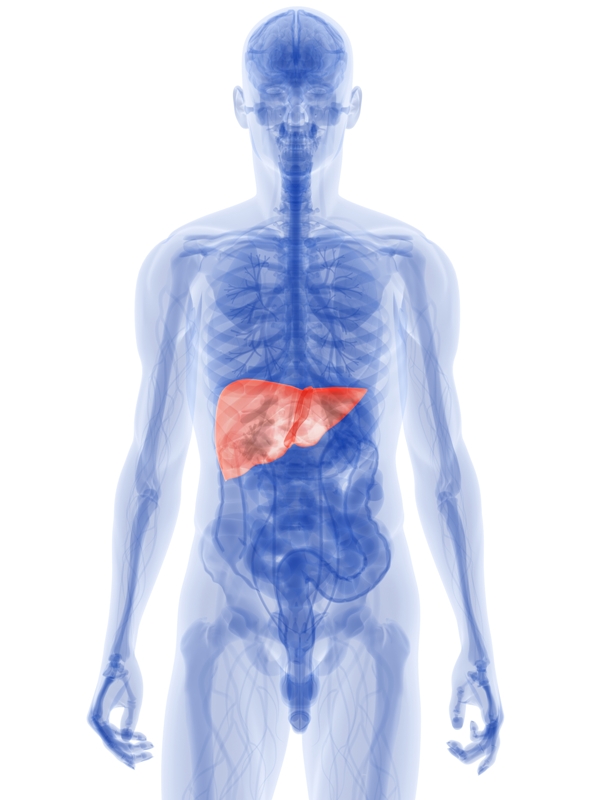
Hepatitis C is a liver disease caused by an infection with a virus. The liver gets inflamed and swollen and stops working as it should. Hepatitis C is a serious disease because the liver is needed to remove toxins that build up in the blood. Hepatitis C can destroy the liver and cause cirrhosis. It is the main cause of liver transplants in the world.
How is it spread?
- By sharing contaminated needles or other drug-using equipment. If you have ever shared drug-using equipment, you may want to be tested for hepatitis C
- By using non-sterilized equipment for tattooing, acupuncture or body piercing
- By unprotected sex with someone who is infected when blood is present. Also, if you have sex with an infected woman who is on her period, or if you have sex with someone who is infected and who has sores on their genitals that may bleed. Sexual transmission is not a common way of becoming infected with hepatitis C when blood is not present.
- On rare occasions, from an infected mother to her baby, mainly during delivery. The risk may be greater if the mother is also infected with HIV.
What are the symptoms?
- A short, mild, flu-like illness
- Nausea and vomiting
- Diarrhea
- Loss of appetite
- Weight loss
- Jaundice (yellow skin and whites of eyes, darker yellow urine and pale feces)
- Itchy skin
- People may have no symptoms at all, but they can still pass on the hepatitis virus to others
How is it treated?
Initial treatment of hepatitis C will depend on whether the infection is in an early (acute) stage or whether it has progressed (chronic). Treatment of short-term (acute) hepatitis: Acute hepatitis C may not be treated because symptoms are usually mild or absent, and hepatitis C is therefore often not diagnosed. By the time HCV is detected in most people, it has already progressed to long-term (chronic) infection. However, when acute hepatitis C is identified and treated with medications (such as interferon), the development of progressive, chronic infection may be prevented.How can infection be prevented?
The spread of hepatitis C can be prevented. The most efficient method of transmitting hepatitis C is through injection of contaminated blood, as may happen during IV drug use. Never share objects such as needles, razors, toothbrushes, nail files, and clippers, which can be a potential source of hepatitis C transmission. When getting a manicure, tattoo, or body piercing, make sure sterile instruments are used and that the institution is licensed. Click here for a list of hepatitis programs. If you’re sexually active, sign-up for free STD testing reminders via email, text or both at WeAllTest.com. If We All Test, we can help eliminate syphilis and other STDs in our community.Public Lice (Crabs) and Scabies
Show Image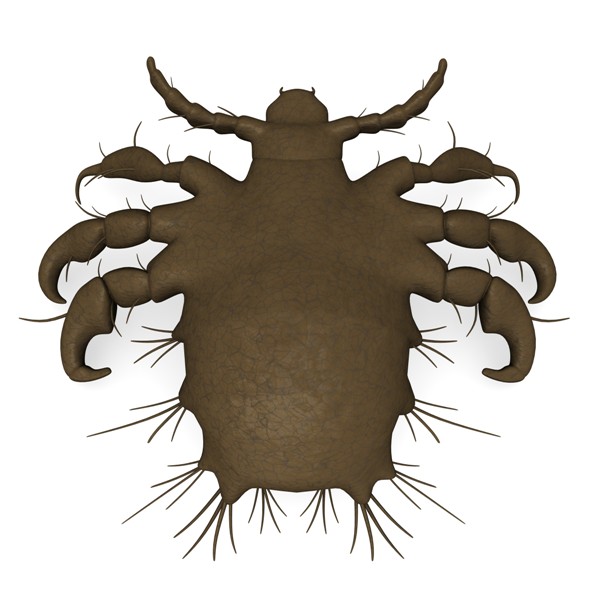
Pubic Lice are also known as crabs. Pubic Lice are very small bugs that attach themselves to pubic hair and bite the surrounding skin. Scabies are mites (bugs) that dig under the skin where they lay their eggs, often in the genital area. Both cause extreme itching in men and women.
How is it spread?
Pubic lice are usually spread through sexual contact. Rarely, they can be spread through contact with an infested person’s bed linens, towels, or clothes. Scabies are transferred by direct, prolonged, skin-to-skin contact with a person already infested with scabies. Contact must be prolonged (a quick handshake or hug will usually not spread infestation). Infestation is easily spread to sexual partners and household members. Infestation may also occur by sharing clothing, towels, and bedding.What are the symptoms?
Show Image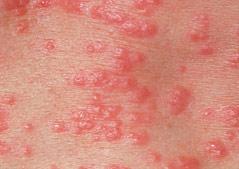 Show Image
Show Image
For pubic lice:
- Itching in the genital area
- Visible nits (lice eggs) or crawling lice (see picture)
- Pimple-like irritations, burrows or rash of the skin, especially the webbing between the fingers; the skin folds on the wrist, elbow, or knee; penis, breast, or shoulder blades (see picture)
- Intense itching, especially at night and over most of the body
- Sores on the body caused by scratching, these sores can sometimes become infected with bacteria
How is it treated?
Several lotions are available to treat either pubic lice or scabies. Always follow the directions provided by your physician or the directions on the package insert. All clothes, bedding, and towels used by the infested person 2 days before treatment should be washed in hot water, and dried in a hot dryer.How can infection be prevented?
An infestation can be avoided by not having sex or by having sex only with one uninfested partner. Pubic lice can also be contracted from bedding and towels used by an infested person, so it’s important to avoid contact with any item – including clothing – that a person who’s infested has used. If you think that you or someone you know may have pubic lice or scabies, click here for testing sites. If you’re sexually active, sign-up for free STD testing reminders via email, text or both at WeAllTest.com. If We All Test, we can help eliminate syphilis and other STDs in our community.Shigella
Show Image
Shigellosis is an infectious disease caused by a group of bacteria called Shigella. Most people infected with shigella develop diarrhea (often bloody), fever, and stomach cramps within a day or two after infection. For some, the diarrhea can be so severe that they may need to be hospitalized. Conversely, others may experience no symptoms at all, but are still able to transmit the shigella bacteria.
How is it spread?
Shigella are present in the diarrheal stools of infected persons while they are sick and for a week or two afterwards. Most shigella infections are the result of the bacterium passing from stools or soiled fingers of one person to the mouth of another person. This happens most frequently when basic hygiene and hand washing habits aren’t followed, food is handled and the contaminated food is eaten. Additionally it can be spread through sexual activity, such as direct or indirect oral-fecal contact (rimming), or by sharing sex toys.What are the symptoms?
- Diarrhea (often bloody)
- Fever
- Stomach cramps
How is it treated?
Shigellosis can usually be treated with antibiotics. Appropriate treatment kills the Shigella bacteria that are present in the patient’s stool, and shortens the illness.How can infection be prevented?
There is no vaccine to prevent shigellosis. However, the spread of shigella can be reduced by frequent and careful hand washing with soap and water, after using the restroom and before handling food. With regard to sexual exposure, shigella transmission can also be reduced by not engaging in risky activities while an individual is experiencing symptoms and for several weeks after symptoms have stopped. Washing the anus and surrounding areas well with soap and water, as well as washing sex toys before and after use, will also help to reduce the spread. If you think that you or someone you know may have been infected with shigella, click here for testing sites. If you’re sexually active, sign-up for free STD testing reminders via email, text or both at WeAllTest.com. If We All Test, we can help eliminate syphilis and other STDs in our community.Syphilis
Show Image
Syphilis is caused by a bacterium called Spirochetes. There are three stages of syphilis. During the primary stage, which usually occurs within 10 to 90 days after exposure, a sore (chancre) may appear on the external genitals, anus or in the rectum. They also can appear on the lips and in the mouth. During the second phase, which usually occurs within 17 days to six-and-a-half months after exposure, a rash may appear on various parts of the body. If left untreated, syphilis can proceed to the latent stage during which it may have no visible symptoms but can cause irreversible damage to the brain and other internal organs.
How is it spread?
Syphilis is transmitted through direct contact with sores during sex with an infected person. It’s transmitted by giving or receiving anal, vaginal or oral sex and by anal contact. A person can easily pass the disease to sex partners during stages 1 and 2. Syphilis is not transmitted through such causal contact as hugging, sharing food, using the same eating utensils, drinking from the same glass, sitting on public toilets, or touching door knobs.What are the symptoms?
Show Image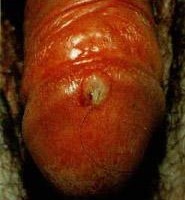
1st Stage:
- Painless, reddish brown sore(s) on the mouth, sex organs or fingers (see picture)
- Sores last one to five weeks, then go away, but if untreated, you still have syphilis
Show Image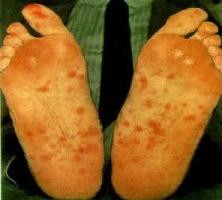 Show Image
Show Image
2nd Stage:
- A rash anywhere on the body (see picture)
- Flu-like symptoms
- Rash and flu like symptoms go away, but if untreated, you still have syphilis
- Uncoordinated muscle movements, paralysis and/or numbness
- Gradual blindness
- Dementia
- At this stage, syphilis is more difficult treat and the damage may be irreversible